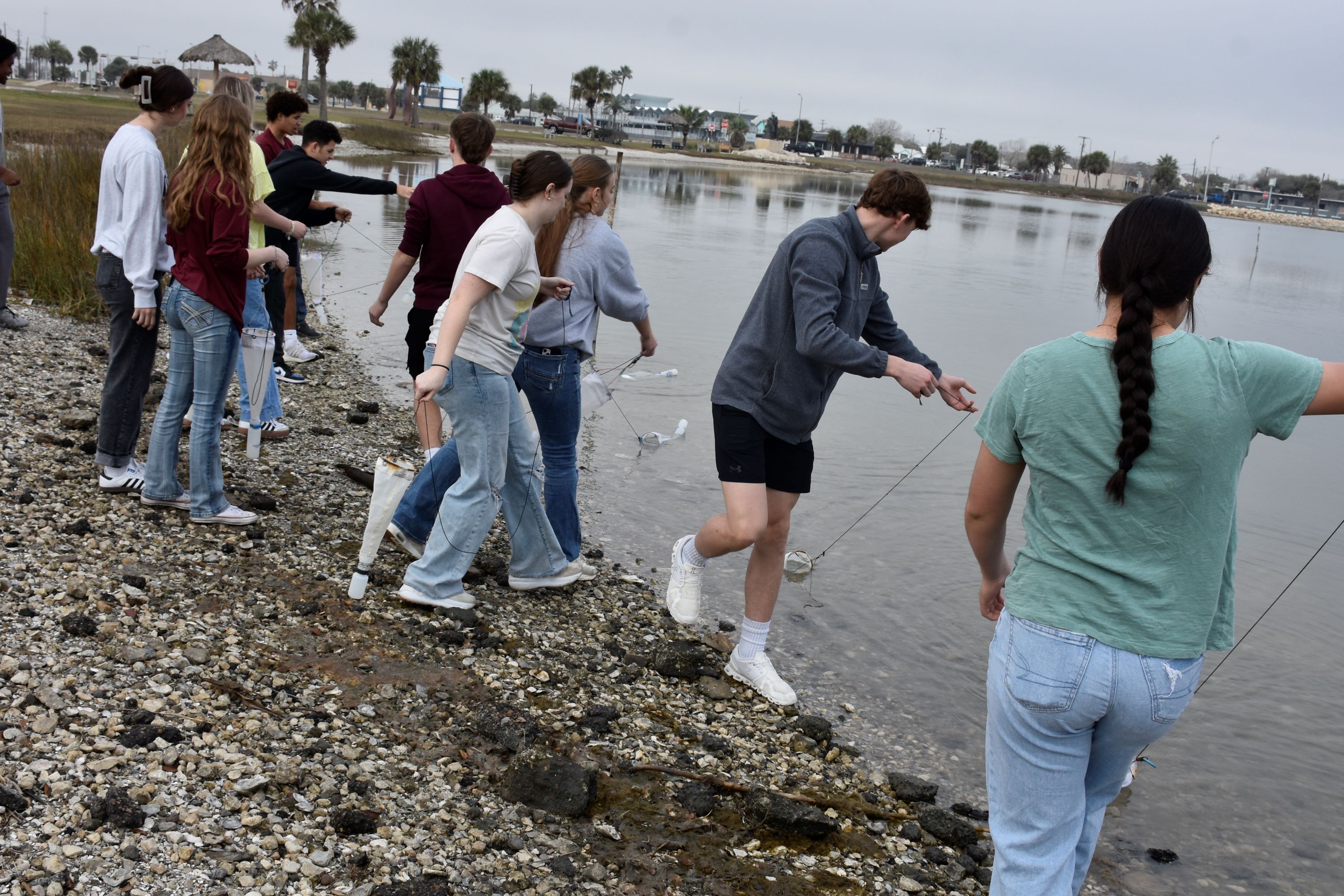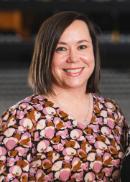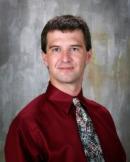Grant funds science-focused field trips for area high schools

Three rural high schools recently were able to take students on trips to learn about the environment and science thanks to a grant from Alcoa Foundation, which is being administered by the University of Houston-Victoria.
UHV received a grant of more than $79,000 from Alcoa Foundation to fund field trips to environmental education locations in the area for a group of area schools. So far, Calhoun, Edna and Industrial High schools have participated in the program.
“UHV is always grateful for an opportunity to encourage education and coordinate with area high schools to reach students,” said Amber Countis, UHV vice president for advancement and external relations. “We are excited to be part of this new initiative to teach students about the environment of the Coastal Bend while also introducing them to UHV as a higher education option.”
Alcoa Foundation worked with UHV to provide funds for multiple schools as well as visits to the schools before and after the trips by UHV faculty members and graduate students to talk with students about what they learned at the different locations.
“These field trips have given students some good opportunities to learn about the environments that they live in and how to preserve them,” said Dmitri Sobolev, interim dean of the UHV College of Natural & Applied Science. “I’ve been able to attend a few of the trips, and it’s great to see how excited the students get about learning. We are hoping this year will go well so we can continue or even expand the program next year.”
Each of the schools that have taken part in the field trips have gone to three learning centers in the Coastal Bend region: The Bay Education Center in Rockport, the Sea Center Texas in Lake Jackson and the Texas Floating Classroom in various locations along the Coastal Bend. Calhoun Independent School District brought 6th-grade students in addition to the high school students.
The most recent field trip was Industrial High School’s visit to The Bay Education Center, where students participated in the center’s plankton education program. Students spent the day participating in a scavenger hunt of the center’s museum displays, collecting and examining plankton samples from Little Bay, and watching a Science on a Sphere presentation.
“We want our students to see different aspects of science and the careers they can pursue,” said Kim Motley, a counselor at Industrial High School. “If students can get a better understanding of the sciences and the environment, that will encourage them to take care of it and pursue careers in STEM fields.”
Mackenzie Alaniz was one of the students from Industrial who attended the trip to Rockport. As a Texas 4H Ambassador, the sophomore from Lolita already knew a little about the environment and its impact on Texas agriculture, but this learning experience brought it to a whole new level. In the future, she hopes to become a game warden or work in a wildlife management career.
“I think it’s important to fund and offer trips and opportunities like this,” she said. “A lot of people aren’t knowledgeable about the environment. By giving us this opportunity, we have the chance to learn more about it and how to keep it safe.”
In addition to the field trips, the grant from Alcoa Foundation also included funds to support UHV’s annual Math & Robotics Awareness Day. This year’s event is scheduled for April 29.
The University of Houston-Victoria, located in the heart of the Coastal Bend region since 1973 in Victoria, Texas, offers courses leading to more than 50 academic programs in the schools of Arts & Sciences; Business Administration; and Education, Health Professions & Human Development. UHV provides face-to-face classes at its Victoria campus, as well as an instructional site in Katy, Texas, and online classes that students can take from anywhere. UHV supports the American Association of State Colleges and Universities Opportunities for All initiative to increase awareness about state colleges and universities and the important role they have in providing a high-quality and accessible education to an increasingly diverse student population, as well as contributing to regional and state economic development.


